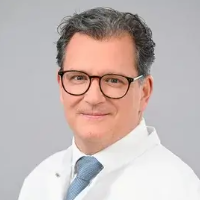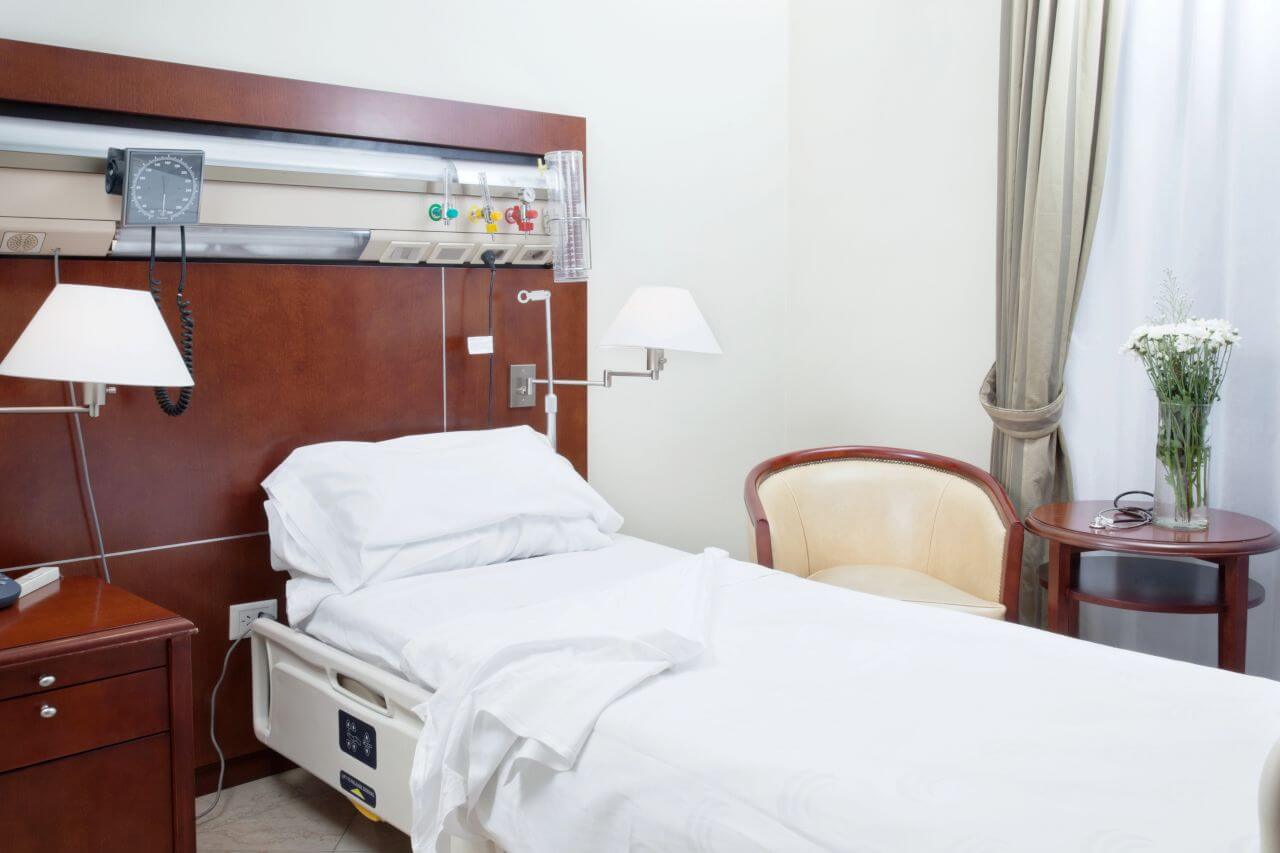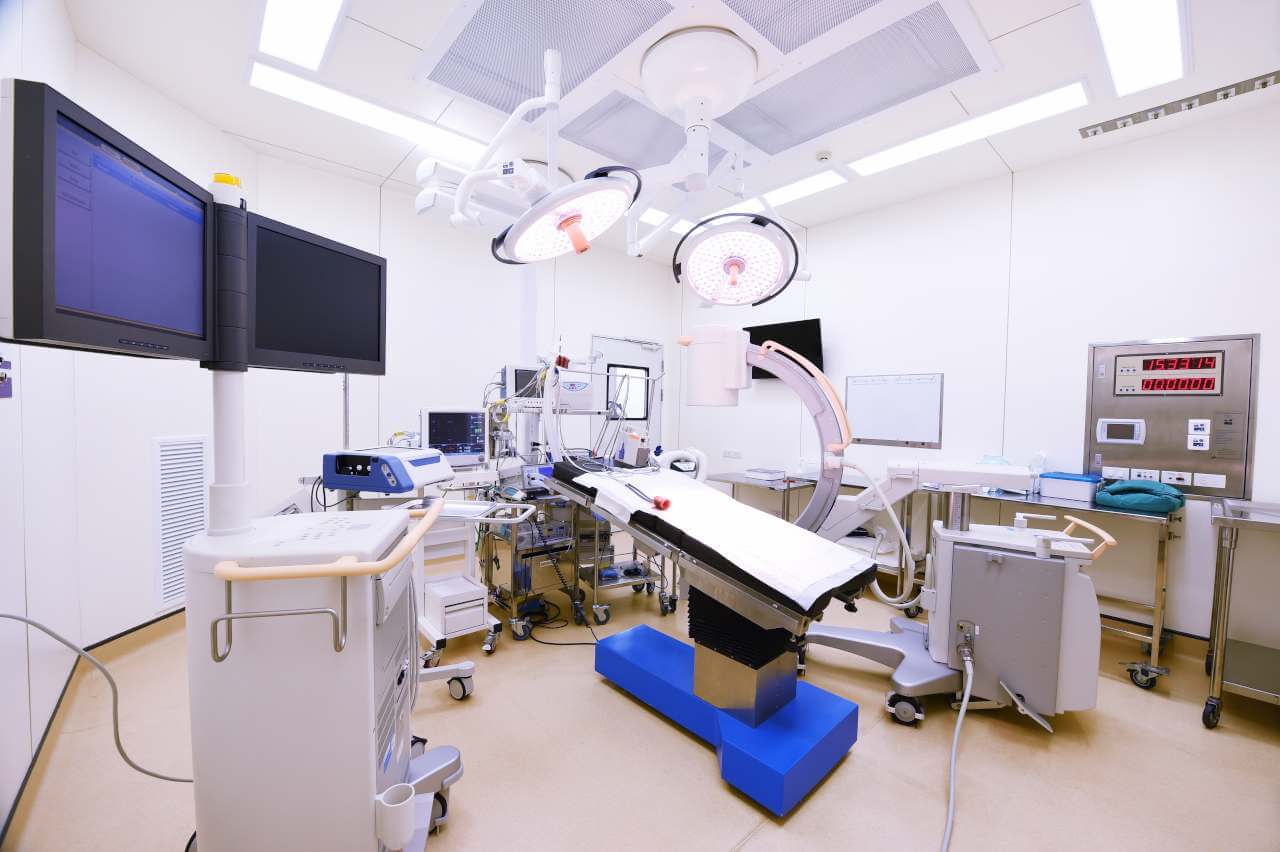
The program includes:
- Initial presentation in the clinic
- clinical history taking
- physical examination
- review of medical records
- laboratory tests:
- complete blood count
- general urine analysis
- biochemical analysis of blood
- indicators of inflammation (CRP, ESR)
- indicators of blood coagulation
- X-ray examination of the hip
- СТ scan of the hip
- preoperative care
- endoprosthesis replacement
- symptomatic treatment
- control examinations
- physiotherapeutic procedures
- orthopedic appliances
- the cost of essential medicines and materials
- nursing services
- full hospital accommodation
- explanation of future recommendations
How program is carried out
Preliminary preparation for surgery: quitting smoking and drinking alcohol 2 weeks before surgery; cancelling non-steroidal anti-inflammatory drugs (diclofenac, ibuprofen); cancelling anticoagulants (warfarin); normalization of body mass, if possible.
Preoperative examination, including consultation with an anesthesiologist and necessary related specialists. X-ray examination and MRI of the hip joint are performed. The examination takes 1-2 days.
Surgical hip endoprosthesis replacement. The operation is performed under general anesthesia and lasts for about 2 hours.
Postoperative care. During the first day after the intervention the patient stays in the intensive care unit, under round-the-clock medical supervision. After that, with a smooth course of the postoperative period, the patient is transferred to a regular ward and the drains are removed. The range of motion expands gradually, from light toes movements to walking. Walking with the use of walking aids is allowed in 3-5 days after the operation. Normal walking without the use of walking aids (crutches, cane) will become possible in 6-12 weeks.
Finally, the attending physician will evaluate the results of control examinations, schedule the date of discharge from the hospital and give you detailed recommendations for further follow-up and treatment.
Required documents
- X-ray examination of the hip joints
- MRI scan of the hip joints, if available
Service
You may also book:
 BookingHealth Price from:
BookingHealth Price from:
About the department
The Department of Knee and Hip Arthroplasty at the Schoen Clinic Duesseldorf specializes in performing partial and total knee and hip replacement surgery, as well as revision surgery to replace previously implanted prostheses. Such surgical procedures are most often indicated for patients suffering from hip arthrosis (coxarthrosis) and knee arthrosis (gonarthrosis). The department's highly qualified team of doctors regularly treats patients with clinical cases of varying complexity. Whenever possible, preference is given to partial joint replacement surgery that preserves the patient's own joint. Since 2021, the department has been certified as an Arthroplasty Centre (EndoCert certificate) by the German Society for Orthopedics and Orthopedic Surgery (DGOOC), which indicates compliance with high treatment standards and excellent therapeutic results. When performing knee and hip arthroplasty procedures, the department's doctors use minimally invasive surgical techniques and computer-assisted navigation systems. The department has also implemented a special postoperative recovery program, Schoen Klinik Endo Aktiv, with which patients can quickly restore their mobility and return to their everyday lives. The Head Physician of the department is Dr. med. Christoph Sardemann.
Hip arthrosis (coxarthrosis) is a progressive disease that causes the destruction of the cartilage tissue in the hip joint. The pathology is accompanied by severe pain and causes movement restrictions. The symptoms of coxarthrosis in the early stages can be well alleviated with the help of conservative treatments such as painkillers and physiotherapy. If such treatment is ineffective, arthroscopic surgery may be considered. This treatment option may help doctors delay the operation to replace the patient's own joint with a prosthesis for a certain period of time. Arthroplasty is a last-line treatment that may be indicated when other therapeutic methods have failed and the patient is still suffering from severe movement limitations and pain. Depending on the specific clinical case, the department's orthopedists perform partial or total hip replacement surgery. In the first case, surgeons replace only the femoral head, and in the second case, they replace the femoral head and neck, as well as the surface of the acetabulum. The department performs all hip replacement surgeries using minimally invasive techniques, thereby eliminating trauma to the muscular system. In most cases, spinal anesthesia is used during the operation. The department's surgeons perform hip replacement surgery with cementless or cemented fixation, with the optimal option being determined on an individual basis. Advanced navigation systems are used to ensure the most precise fixation of the endoprosthesis in the desired position. The surgeon selects the most suitable type of prosthesis for the patient at the stage of preparation for the operation, taking into account their individual needs and wishes. It is worth noting that the department's doctors work only with premium-quality endoprostheses from world-famous manufacturers, the results of which are included in the German Arthroplasty Registry (EPRD).
The department's orthopedic team also specializes in partial and total knee arthroplasty. The most common indication for such surgery is knee arthrosis (gonarthrosis), which causes progressive destruction of cartilage tissue. Should gonarthrosis be suspected, the department's doctors will study the patient's medical history and conduct an examination and imaging tests (X-ray, CT, and/or MRI). With diagnostic data, the specialists begin to develop a treatment regimen. At the early stages of the disease, the department's orthopedists use only a comprehensive conservative treatment regimen, including therapeutic exercises, physiotherapy, and drug therapy. At the advanced stages of the pathological process, conservative measures are ineffective, so doctors most commonly perform partial or total knee replacement surgery. Whenever possible, the first option is preferred because such an operation involves the replacement of only the affected areas of the knee joint with a prosthesis, while total knee replacement involves replacing the entire joint with an artificial prosthesis. The department also performs knee arthroplasty using minimally invasive techniques under spinal anesthesia. Navigation systems are used during surgical procedures, with the help of which the surgeon can implant the prosthesis in the desired position with pinpoint accuracy. This approach eliminates the risk of postoperative complications and displacement of the prosthesis.
Thanks to performing hip and knee arthroplasty procedures using minimally invasive techniques, patients are back on their feet on the very day of surgery. In addition, the department successfully uses the unique postoperative recovery program called Schoen Klinik Endo Aktiv. The goal of this program is to restore the patient's full range of motion as quickly as possible and to ensure the patient's independence in everyday life. Most patients leave the hospital 4-5 days after surgery and can move on their own without assistance.
The department's clinical focuses include:
- Minimally invasive partial and total hip arthroplasty using advanced navigation systems
- Minimally invasive partial and total knee arthroplasty using advanced navigation systems
- Minimally invasive revision hip and knee arthroplasty with bone grafting
- Conservative and surgical treatment of periprosthetic fractures and bone fractures localized in close proximity to the prosthesis
- Conservative and surgical treatment of periprosthetic infections (in close collaboration with infectious disease specialists)
- Other medical services
Curriculum vitae
Higher Education and Professional Career
- Since 2019 Head Physician, Department of Knee and Hip Arthroplasty, Schoen Clinic Duesseldorf.
- 2010 - 2019 Managing Senior Physician, Department Orthopedics, St. Vincent Hospital for Orthopedics Duesseldorf.
- 2007 - 2010 Senior Physician, Department of Orthopedics, St. Vincent Hospital for Orthopedics Duesseldorf.
- 2006 - 2007 Physician, Department of Orthopedics, St. Vincent Hospital for Orthopedics Duesseldorf.
- 2005 - 2006 Assistant Physician, Department of Orthopedics, St. Vincent Hospital for Orthopedics Duesseldorf.
- 2004 - 2005 Assistant Physician, Department of Orthopedics, Marien Hospital Duesseldorf Kaiserswerth.
- 2002 - 2004 Assistant Physician, Department of Trauma Surgery, Dr. Rinecker Surgical Clinic Munich.
- 2000 - 2001 Assistant Physician, Department of Orthopedics, Augustinerinnen Hospital Cologne.
- 1993 - 2000 Medical studies, Rhine-Westphalia University of Technology Aachen.
Qualifications
- Board certification in orthopedics and trauma surgery.
- Additional qualifications in special orthopedic surgery.
- Certified specialist in knee and hip arthroplasty, German Arthroplasty Society (AE).
Photo of the doctor: (c) Schön Klinik Düsseldorf
About hospital
According to the reputable Focus magazine, the Schoen Clinic Duesseldorf is one of the top medical facilities in North Rhine-Westphalia and is also one of the best Spinal Surgery Centers in Germany.
The Schoen Clinic Duesseldorf is recognized as a leading medical facility that provides high-quality medical care with an emphasis on a humane attitude and understanding of each patient's individual needs. The clinic offers a range of medical specialties, including orthopedics, trauma surgery, spinal surgery, otolaryngology, cardiology, internal medicine, angiology, and vascular surgery.
Patients' health is in the safe hands of a highly qualified team of more than 590 physicians and nurses. The clinic treats more than 48,000 patients annually, which is a testament to the high level of patient satisfaction with medical services.
The clinic has a comfortable infrastructure, including modern diagnostic rooms, laboratories, an emergency medical care unit, therapeutic rooms, and operating rooms adapted for low-traumatic surgical interventions. It is worth noting that the clinic has a Center for Arthroplasty that is certified according to the EndoCert standards by the German Society for Orthopedics and Orthopedic Surgery (DGOOC). This is the most prestigious certificate in this medical field in Germany.
The Schoen Clinic Duesseldorf provides comprehensive medical care in accordance with international clinical standards, always taking into account the individual needs and wishes of each patient. The doctors strive to provide patients with the most effective and sparing treatment possible using the very latest therapeutic techniques.
Photo: (с) depositphotos
Accommodation in hospital
Patients rooms
Patients of the Schoen Clinic Duesseldorf live in comfortable single and double rooms designed in light colors. The rooms are furnished with a comfortable, automatically adjustable bed with an orthopedic mattress, a wardrobe, a table and chair, a TV set, a telephone, a mini-fridge, and a safe. Each patient room has an ensuite bathroom with a shower and toilet. The bathroom has changeable towels, a hairdryer, toiletries, and a bathrobe.
Meals and Menus
The patient and his accompanying person are offered three meals a day: breakfast, lunch, and dinner. The patient and his accompanying person have a choice of three set menus daily.
If, for some reason, you do not eat all the foods, you will be offered an individual menu. Please inform the medical staff about your dietary preferences prior to treatment.
Further details
Standard rooms include:
![]() Toilet
Toilet
![]() Shower
Shower
![]() Wi-Fi
Wi-Fi
![]() TV
TV
Accompanying person
Your accompanying person may stay with you in your patient room or at the hotel of your choice during the inpatient program.
Hotel
You may stay at the hotel of your choice during the outpatient program. Our managers will support you for selecting the best option.





